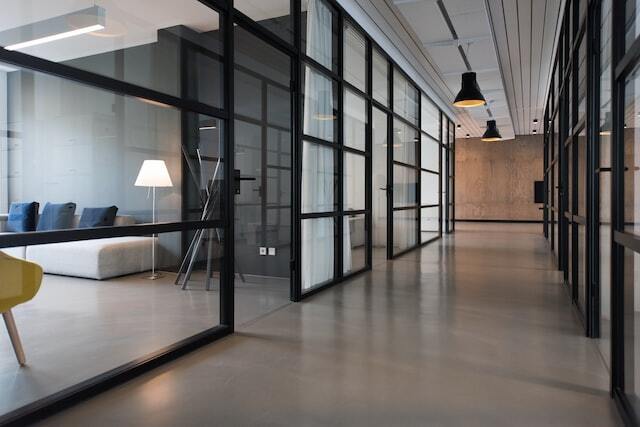Employees’ Compensation Insurance in Hong Kong and Covid19

In Hong Kong all employers are required to obtain Employee’s Compensation insurance to cover their liability towards a worker suffering a work-related accident, injury, or illness during the normal course of their employment. Essentially, if an employee gets injured while on the job an Employee’s compensation Insurance policy will cover the company’s financial obligations towards the worker’s injury.
Along with car insurance Employee’s compensation insurance is one of only 2 legally required insurance products in Hong Kong. That is to say, these are the only two type of insurance which the Hong Kong government has specifically said you must possess; if you are operating a vehicle on public roads that vehicle must be insured and if you are employing someone (in any capacity, for any job) you must hold an Employees’ Compensation Insurance policy.
This means that any employer (including individuals who employ domestic helpers, part-timers, hourly workers, and interns) must have Employee’s Compensation Insurance for their workers.

Important Considerations in Employee’s Compensation Insurance
When taking out an Employee’s Compensation Insurance policy from an insurance company you will be asked to complete an application. In this application you will need to list all your employees, their salary, and their job duties.
Salary is an important factor in EC Insurance, because this forms the basis for any claim – the employee cannot receive appropriate compensation for lost wages due to an on-the-job injury if their salary is not known. However, salary can actually be less of an important variable than the employee’s job duties because this will be directly linked to how claims will occur and the severity of those claims if they do happen.
For most office workers, the risk of suffering a severe accident or injury during the normal course of employment is relatively low. There is a possibility of developing Carpal Tunnel Syndrome if you do not practice proper posture when at your desk, or having a back problem due to non-ergonomic seating arrangements. The risk of a construction, warehouse, or factory worker experiencing a workplace related injury or illness is much higher simply due to the fact that there are more risks.
While a construction worker probably isn’t the best example here because of the existence of Contractor’s All Risks insurance (an umbrella product which includes EC, and Public Liability insurance), individuals in high risk professions are more likely to make a claim under their employer’s Employees Compensation Insurance plan. However, the place where more people suffer a serious accident than any other is in their home.
This makes Maid Insurance very interesting, because the scope of employment covered under an EC policy is, by its nature, domestic. That means that the claimable events under maid insurance Employees Compensation protection will normally occur in and around the employer’s home. Does this make being a domestic helper a high-risk job? In the normal and routine course of the employment definition of domestic helpers in regards to Hong Kong insurance, it is not.
Remember, any individual employing anyone to do any job in Hong Kong must have EC insurance. Maid Insurance products will normally start with Employees Compensation cover at its core and can be expanded to include additional benefits. The job nature of the domestic helper is understood and the premium is designed to reflect the risk of a claim under the insurance – which is fairly low given that Maid Insurance Employee Compensation only products are available in the region of HK$300 per year.
It is important to note that Maid Insurance is fairly unique in the world of EC Insurance because most jobs in Hong Kong are service based, and will normally require you to go to a place of business, like an office, shop, or restaurant, to perform the basic functions of your employment.

Employees Compensation Insurance and Working From Home
When it comes to Employee’s Compensation Insurance, the fact that you have to go somewhere else to do your work makes it fairly easy to identify claims situations which have arisen during the normal course of your employment.
Unfortunately, it also means that underwriters have historically been extremely reluctant to insure individuals and companies who are working out of a private residence. The reason for this normally being that it is too difficult to determine whether a claim occurred on an employee’s private time (while they were at home), or whether the accident occurred while the employee was “at work” (while also being at home).
Remember, a majority of accidents happen when people are at home. Not when they’re at work. It may not be the most obvious place, but the living/lounge room (and not the kitchen) is the hotspot for accidents in your house.
From the insurers perspective, there would be nothing stopping a work-from-home individual from slipping and falling while taking their morning shower (not normally considered to be part of a person’s routine employment), and simply waiting till they were “officially on the job” and stating that they fell over while walking to their desk from the printer. So it is simpler to exclude home workers from private EC insurance protection, and refer them to the government’s Employees’ Compensation Insurance Residual Scheme Bureau.
The ESCI normally deals with employees or employers who have been unable to obtain EC coverage due to being “High Risk” and having been declined coverage from the General Insurance Underwriters operating in Hong Kong. Sole owned businesses, or independent and self-paid contractors, who work from home, or which have a residential address as an office address, are normally classified as “high risk” because they spend more time at home where accidents are more likely to happen.
Employees’ Compensation Insurance and Covid19
This throws a large degree of uncertainty into the current situation as many people are now starting to work from home, despite the fact that they are being covered by an Employee’s Compensation Insurance policy which is offered through a company for a specific office location. Technically a case could be made that any individual currently working from home without an EC Insurance policy that specifically states working from home is covered, or which names your home address as your work address, is not protected by their employer’s EC plan.
What this means if a worker does experience an accident while at home, working in the official capacity of their employment, is that the accident will likely not be covered by the insurance policy that was legally required to protect against that eventuality. As such, it will be up to the employee to shoulder the financial burden of the accident, and the potential loss of salary which could accompany recuperation and recovery.
With so many people being told to work from home during the Covid19 pandemic a large number of workers (and businesses) in Hong Kong may not fully realize that they do not have the benefit of the normal coverage that would protect them during the normal course of their working life. They will be unaware that they are financially responsible for any accidents they may have at a work-from-home incident, and that unless their EC Insurance policy has been amended to include their work-from-home status or has included their residential address as a covered location, the normal safety net does not apply.
As such, it is definitely worth considering a personal Health Insurance policy (if not already being provided by your employer) and a personal accident insurance plan. Health Insurance can help you deal with the immediate costs of treatment, and personal accident insurance can help financially assist your recovery while you are unable to work.
This is a complicated situation, and we would strongly urge all readers to contact a CCW Global insurance broker today and identify whether there are any gaps in your Employee’s compensation insurance coverage in light of the current Covid19 and remote working situation. Your employees may not be fully protected during this time of crisis, and we are more than happy to assist in answering any questions to may have regarding the evolving situation.



